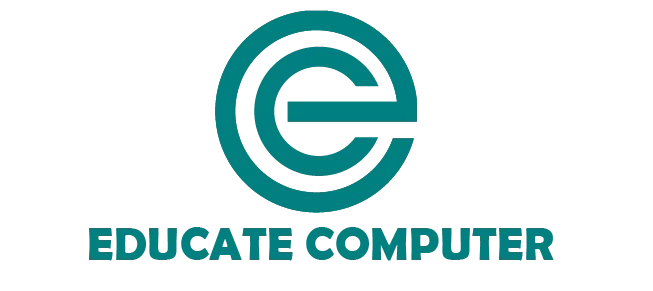Computers use many special words. These words help us understand how computers work and what they can do. Below is a comprehensive list of computer-related ‘D’ words, along with short descriptions. It helps you build your tech vocabulary.
Computer Terms that start with the Letter D
Here is the list of Computer words that start with D with Meaning:
| Word | Description |
| Data | Information processed or stored by a computer |
| Database | An organized collection of data stored and accessed electronically |
| Debugging | The process of identifying and removing errors from computer software |
| Decryption | The process of converting encrypted data back into its original form |
| Default | A preset value or setting |
| Defragmentation | The process of reorganizing the data on a disk to increase access speed |
| Delete | To remove or erase data from a file or storage device |
| Desktop | The main screen area of a computer’s user interface |
| Developer | A person who creates software applications |
| Device Driver | Software that allows a computer to interact with hardware or devices |
| DHCP | Dynamic Host Configuration Protocol; network management protocol |
| Diagnostics | Tools or procedures used to identify and solve computer problems |
| Digital | Representing data as a series of zeros and ones |
| Directory | A file system cataloging structure to organize files |
| Disk | A data storage device (e.g., hard disk, floppy disk) |
| DNS | Domain Name System; translates domain names to IP addresses |
| Docking Station | A device that allows a laptop to connect to peripheral devices |
| Domain | A group of computers and devices on a network identified by a common name |
| Download | To transfer data from a remote system to a local system |
| DPI | Dots Per Inch; a measure of spatial printing or video dot density |
| DRAM | Dynamic Random Access Memory; a type of computer memory |
| DRM | Digital Rights Management; access control technologies |
| Dual-Core | A CPU with two processing units on a single chip |
| DVD | Digital Versatile Disc; optical disc storage format |
| Dynamic | Changing or adjustable in real-time |
| Data Mining | The process of discovering patterns in large data sets |
| Data Warehouse | A system for storing and managing large amounts of structured data |
| Deep Learning | A subset of machine learning based on artificial neural networks |
| DDoS | Distributed Denial of Service; a type of cyber attack |
| Docker | A platform for developing, shipping, and running applications in containers |
| DOM | Document Object Model; a programming interface for HTML and XML documents |
| Data Center | A facility used to house computer systems and associated components |
| Data Packet | A unit of data transmitted over a network |
| Data Structure | A way of organizing and storing data for efficient access and modification |
| Daemon | A background process that handles requests for services |
| DAC | Digital-to-Analog Converter; converts digital signals to analog |
| Dashboard | A user interface that organizes and presents information |
| Data Type | A classification identifying the type of data a variable can hold |
| DBMS | Database Management System; software for managing databases |
| DDR | Double Data Rate; a type of computer memory |
| Deadlock | A situation where two or more processes are unable to proceed |
| Debugger | A tool used to test and debug other programs |
| Decode | To convert encoded data back into its original format |
| Decompression | The process of restoring compressed data to its original form |
| Dedicated Server | A server devoted entirely to a single client or purpose |
| Degauss | To demagnetize a CRT monitor or magnetic storage device |
| Denial of Service | An attack aimed at making a computer resource unavailable |
| Deprecated | A feature or practice that is discouraged from use |
| Descriptor | A value used to describe the attributes of a data element |
| Dialog Box | A small window that communicates information to the user |
Also Read:
| Computer words that start with C with Meaning | Computer words that start with E with Meaning |
| Computer words that start with F with Meaning | Computer words that start with G with Meaning |
